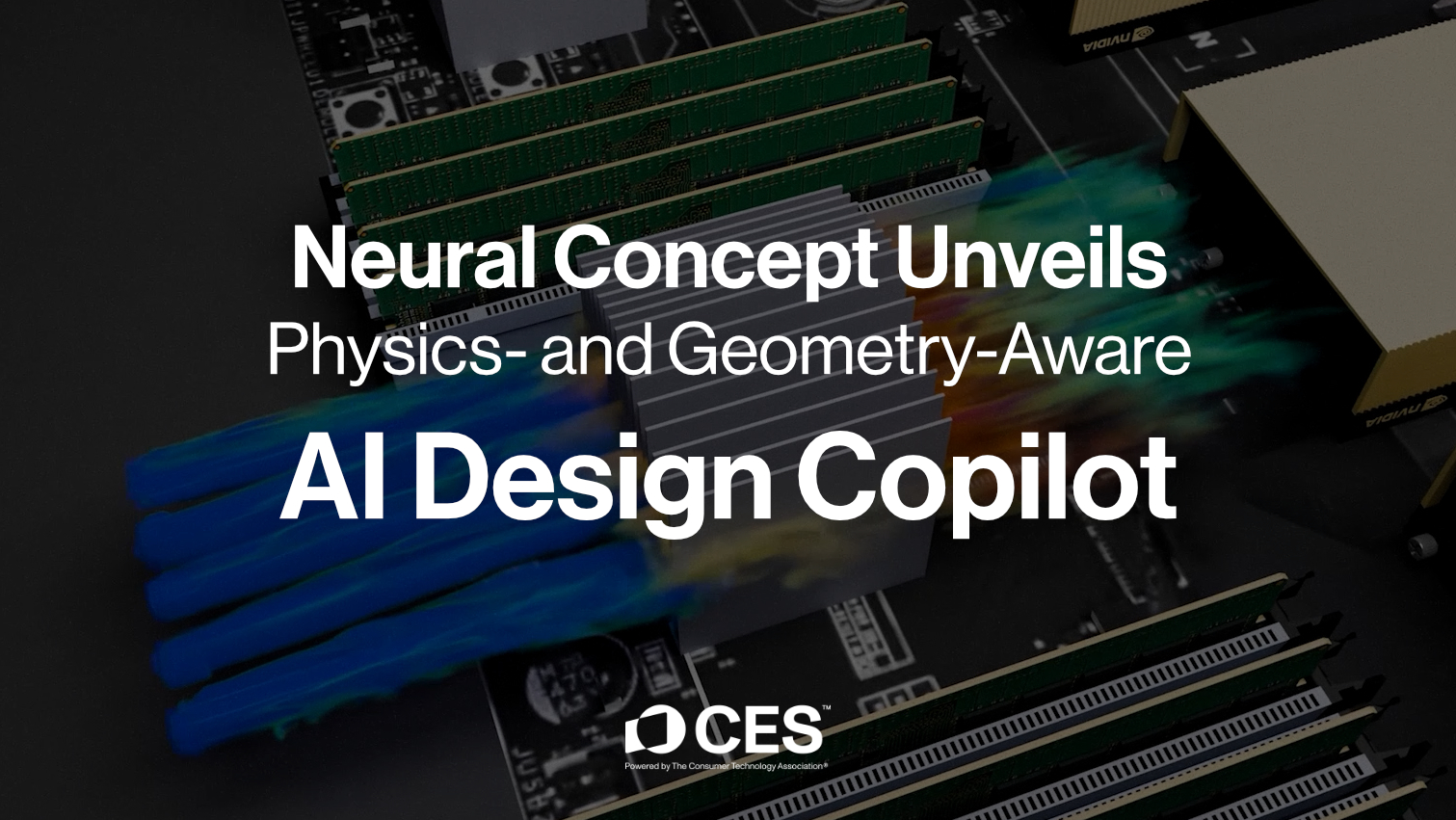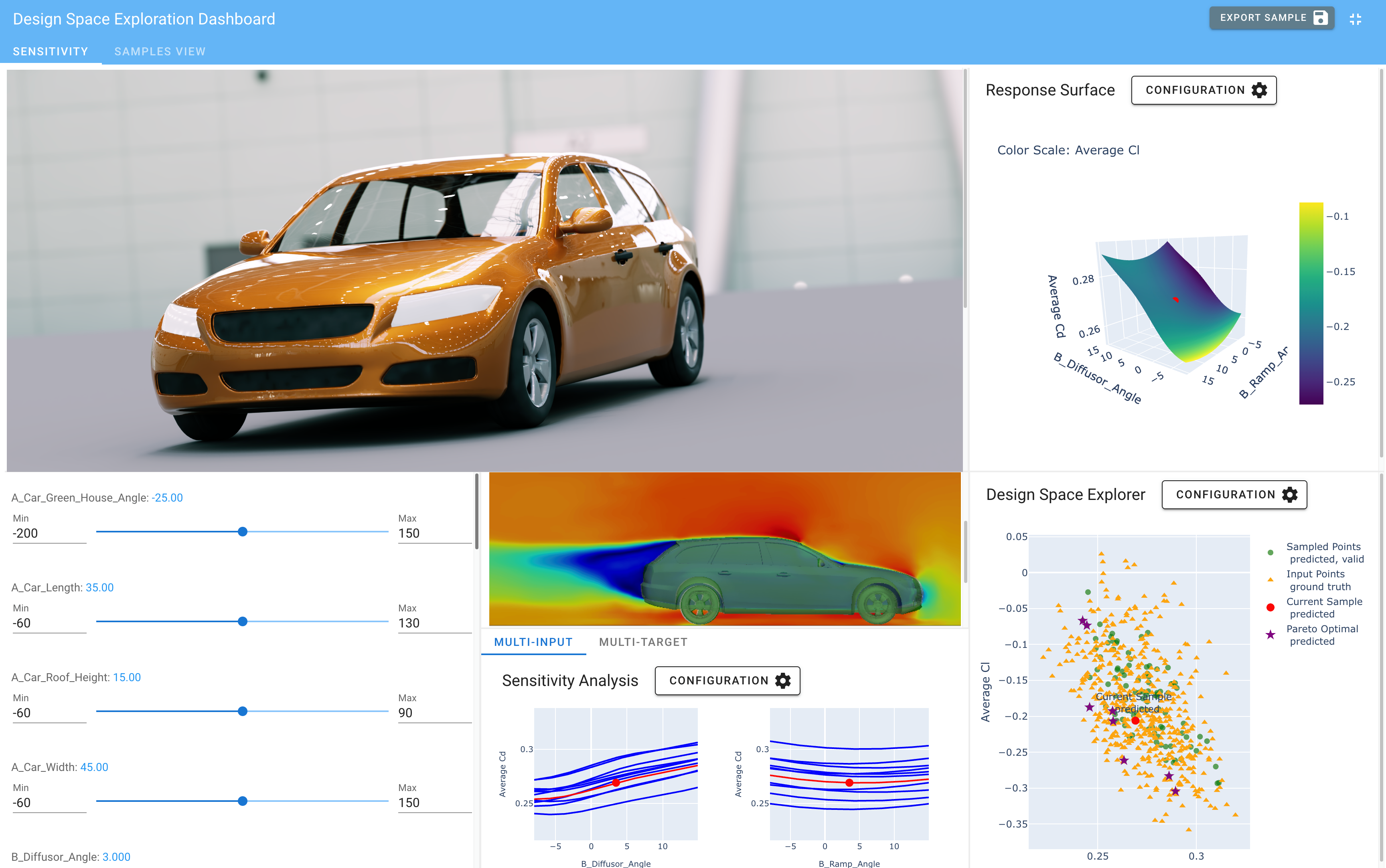AI in Formula One: A Peek Behind the Curtain with Neural Concept

In a recent TechCrunch interview with esteemed automotive and technology journalist Tim Stevens, Neural Concept's CEO and co-founder, Pierre Baqué, provided a fascinating glimpse into how Artificial Intelligence (AI) is revolutionising Formula One teams' pursuit of the racing edge.
Formula One stands as a beacon of innovation, where even the smallest adjustments to design can tip the scales between winning and losing. Neural Concept has been at the forefront of this transformation, working with Williams Racing, one of the four Formula One teams leveraging its Engineering Intelligence platform to streamline simulation processes and elevate aerodynamics in the sport.
Racing teams are increasingly turning to Neural Concept to harness AI's power, accelerating the pace of innovation and generating cutting-edge racing designs that optimise key factors such as aerodynamics, weight, and speed.
Empowering Performance Through Simulation
Fluid Dynamics simulation is pivotal in Formula One development, particularly in optimising aerodynamics. Teams leveraging Neural Concept to enhance product development and conduct precise simulations, are able to explore more aerodynamic conditions with unmatched speed and precision.
Transformative Technology at Work
Neural Concept's proprietary AI core drives an interactive, collaborative, and scalable platform seamlessly integrated with Computer-Aided Engineering (CAE) and Computer-Aided Design (CAD) tools. Leveraging physics-informed 3D deep learning, engineers automate design processes and elevate simulations, unlocking new frontiers in innovation.
With Neural Concept, engineers can 10x accelerate their work, reduce product development time by up to 75%, and identify novel design improvements across a variety of given attributes including efficiency, safety, speed, and aerodynamics.
Engineering Intelligence in Action
Yet, the impact of AI-enhanced design extends beyond the F1 circuit. On September 14th 2023, François Pervis, a seven-time world champion on the track, broke the European speed record on a streamlined recumbent bike - exceeding 138 km per hour. His bike was designed and developed using Neural Concept.
Neural Concept is also collaborating with SP80, a team of EPFL engineers, to construct a sailboat capable of reaching an astonishing 80 knots (148 km per hour), smashing the current world record of 65.45 knots for the fastest sail-powered boat.
Neural Concept's deep learning model has crafted a new hydrofoil to propel SP80 toward their ambitious goal, generating a performance gain of over 20% and delivering dramatic speed increases. SP80 plans to challenge the world sailing record later this year.
Neural Concept is spearheading the adoption of AI in engineering, embedding Engineering Intelligence at the core of product design and development, and reshaping the future of Formula One and beyond.
To find out more about our record breaking work, read this article.
About Neural Concept
Founded in 2018, Neural Concept provides a leading end-to-end platform which places AI at the center of the product development process to revolutionize the way engineers conceptualize, design and validate products. Neural Concept’s flagship technology exploits the computational power of deep learning to assist world class engineering teams reduce development times by up to 75%, improve product characteristics including efficiency, safety, speed, and aerodynamics, and empower engineers to 10x accelerate their work. Spun-out from the Swiss Federal Institute of Technology in Lausanne (EPFL) in 2018 and backed by world renowned investors such as Alven, Neural Concept works with 40% of the largest European and Asian OEMs and 25% of the top 100 tier-1 suppliers.
For more information, visit https://www.neuralconcept.com



